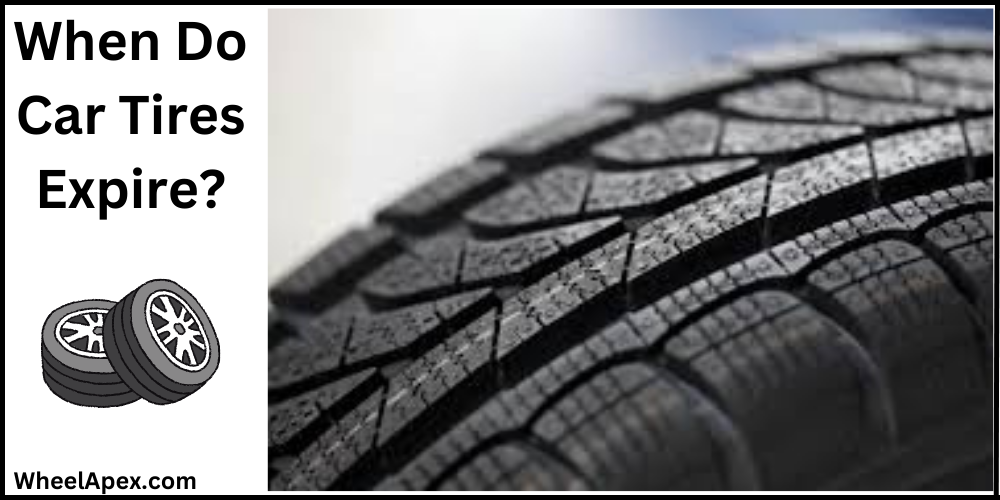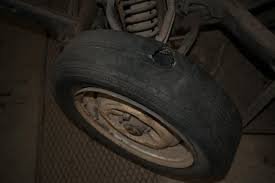As we hurdle through occupied roads, leave on brave travels, and depend on our vehicles for everyday transportation, we frequently take the strength of our vehicle’s tires for allowed. Nonetheless, very much like some other parts, tires have a limited life expectancy, and understanding when they lapse is pivotal for both well-being and ideal execution.
When Do Car Tires Expire? Envision cruising along the expressway, feeling the breeze in your hair, when unexpectedly a victory happens, making your vehicle completely go. Startling, right? That is the reason why knowing when to resign your vehicle’s tires becomes vital. In this article, we will dig into the captivating universe of tire termination, revealing insight into the elements that add to their life expectancy, how to distinguish indications of mileage, and why customary support is fundamental to guarantee your security out and about.
ٰIn this article, we will discuss When Do Car Tires Expire? Thus, lock in and go along with us on this educational excursion as we unwind the secrets encompassing tire lapse, empowering you to settle on informed choices and safeguard both yourself and your appreciated vehicle. We should investigate the interesting universe of when vehicle tires lapse and how it affects you as a mindful driver.
Contents
When Do Car Tires Expire?
Vehicle tires are a basic part of street security, giving footing, strength, and control. Be that as it may, similar to some other parts, they have a restricted life expectancy. Knowing when vehicle tires terminate is significant to guarantee ideal execution and security out and about. We will investigate the elements that decide tire life expectancy, indications of tire maturing, and fundamental tips for tire upkeep.
Car tires typically expire after six to ten years due to aging and degradation, even if they haven’t reached their tread wear limit. Always prioritize safety and replace tires accordingly, considering factors like climate and usage.
Figuring Out Tire Life Expectancy
While tires don’t accompany a definite termination date, they do have a limited life expectancy impacted by a few variables:
- Time: Paying little mind to use, tires age over the long haul. Openness to intensity, daylight, and the climate can make elastic mixtures debase, prompting a decrease in execution and well-being.
- Mileage: The distance a tire voyage influences its life expectancy. Track wear, rubbing, and street conditions bit by bit wear out the tire’s track, affecting its capacity to keep up with hold and foothold.
- Upkeep: Legitimate support, including ordinary tire revolutions, arrangements, and strain checks, can expand a tire’s life expectancy. Ignoring support can speed up the wear and diminish their general sturdiness.

Indications of Tire Maturing
- Track Profundity: Tires are furnished with track wear pointers and little bars situated inside the notches. When the track profundity arrives at these pointers, it’s an obvious indicator that the tire should be supplanted.
- Breaks and Lumps: Maturing tires might foster breaks, particularly in the sidewalls. Lumps or air pockets may likewise show up because of interior harm or debilitated structure. These are cautioning signs that the tire’s primary uprightness has been compromised.
- Inordinate Vibration: If you notice expanded vibrations while driving, it very well may be a sign of tire wear or an out-of-balance condition. It’s fundamental to have them investigated instantly.
- Mature: Regardless of whether your tires have adequate track profundity, taking into account their age is significant. Most specialists suggest supplanting tires that are six years or more established, paying little mind to apparent indications of wear.
Tips For Tire Upkeep
- Normal Reviews: Regularly assess your tires for indications of wear, harm, or maturing. Search for swells, breaks, track wear, and unusual track designs.
- Legitimate Filling: Keep up with the suggested tire strain as determined by the vehicle producer. Underinflated or overinflated tires can prompt diminished life expectancy, diminished eco-friendliness, and compromised security.
- Pivot and Arrangement: Consistently turn your tires to guarantee even wear across each of the four wheels. Legitimate wheel arrangement forestalls untimely tire wear and guarantees ideal dealing with and execution.
- Store Tires Appropriately: If you want to store your tires, keep them in a cool, dry spot away from direct daylight. Try not to store them close to synthetic compounds or solvents that can harm the elasticity.

FAQs
How Do I Know When My Tires Expire?
Tire not set in stone by their age, not a decent date. Most tires last 6-10 years, contingent upon utilization and capacity conditions. Check the sidewall for a four-digit Dab code; the last four digits address the week and year of production. Supplant tires on the off chance that they are more than 10 years old, regardless of whether they show up fine.
How Long Do Car Tires Expire?
Vehicle tires regularly terminate following six years, no matter how much track remains. The elastic crumbles after some time, turning out to be less protected and inclined to victories. Customary examination and substitution depending on the situation guarantee ideal security and execution, expanding the existence of your vehicle and forestalling mishaps brought about by maturing tires.
Can Tires Last 5 Years?
Tire life span to a great extent relies upon factors like use, environment, and support. For the most part, quality tires can endure as long as 5 years or more if all around focused on. Standard examinations, appropriate expansion, arrangement checks, and keeping away from outrageous circumstances can broaden their life expectancy. Nonetheless, consistently follow the maker’s suggestions for explicit tire care and substitution rules.
Conclusion:
Understanding when vehicle tires terminate is critical for keeping up with vehicle security and execution. While tires might have all the earmarks of being in great shape, they can weaken over the long run because of elements like maturing, mileage, and openness to brutal circumstances. It is vital to recollect that regardless of whether the track profundity appears to be sufficient, the general respectability of the tire might have been compromised.
Producers for the most part prescribe supplanting tires every six to a decade, no matter what the track profundity. This rule considers the steady debasement of tire materials, which can influence their hold, dealing with, and by and large well-being. Moreover, it is fundamental to routinely investigate tires for indications of harm, lumps, breaks, or uncommon wear designs.
Sources:
- By Adrian Michell How do you tell when your car’s tires will expire? Posted 1 Year Ago.



